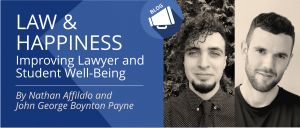 Law and Happiness: Challenges and Opportunities to Improving Lawyer and Student Well-Being
Law and Happiness: Challenges and Opportunities to Improving Lawyer and Student Well-Being
The Panel has been designed in partnership with Healthy Legal Minds (HLM), a group of law students and jurists that provide advocacy and evidence-based solutions to address causes of poor mental health and well-being in the legal profession. HLM envisions a profession where law students and legal professionals are equipped with the tools to lead healthy and happy lives, and easily seek help in the face of the challenges of the legal profession.

 Episode 103 | Addiction, Work, and Justice: What Are We Missing?
Episode 103 | Addiction, Work, and Justice: What Are We Missing? Ending the Harm to Parents and Children from Ontario’s Family Justice System by Transforming Family Law Culture
Ending the Harm to Parents and Children from Ontario’s Family Justice System by Transforming Family Law Culture Lawyers Play an Important Role in Addressing Coercive Control
Lawyers Play an Important Role in Addressing Coercive Control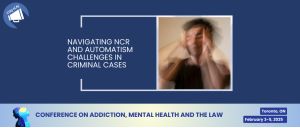 Navigating NCR and Automatism Challenges in Criminal Cases
Navigating NCR and Automatism Challenges in Criminal Cases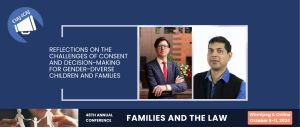 Reflections on the Challenges of Consent and Decision-Making for Gender-Diverse Children and Families
Reflections on the Challenges of Consent and Decision-Making for Gender-Diverse Children and Families Réflexion sur les défis du consentement et de la prise de décision pour les enfants et familles de genres divers
Réflexion sur les défis du consentement et de la prise de décision pour les enfants et familles de genres divers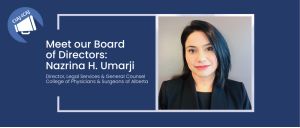 Meet our Board of Directors: Nazrina H. Umarji
Meet our Board of Directors: Nazrina H. Umarji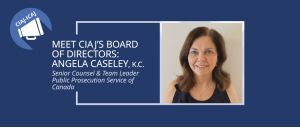 Meet our Board of Directors: Angela Caseley
Meet our Board of Directors: Angela Caseley